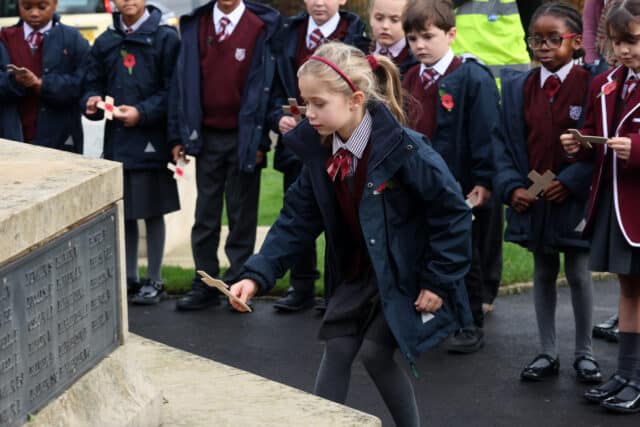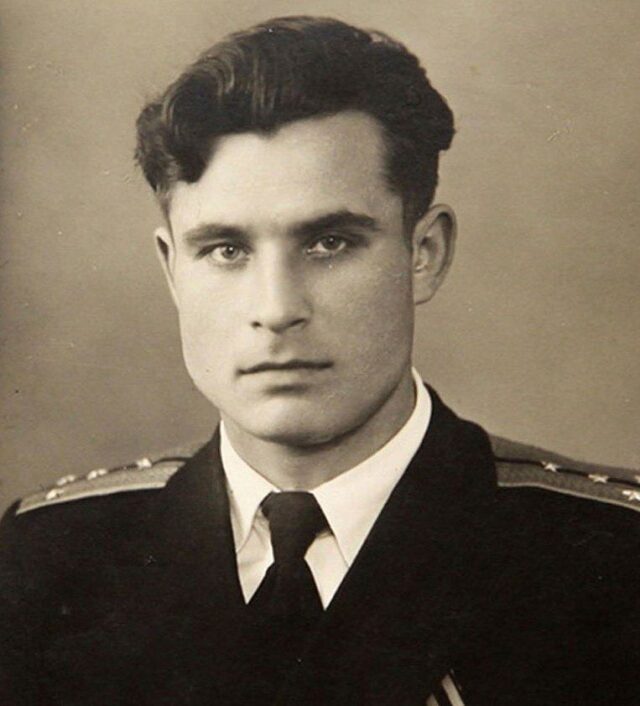The Importance of Remembrance
In Monday’s assembly we heard the story of a massacre that took place in June 1944, four days after the D-Day landings on the Normandy beaches that marked the final year of World War Two.
Oradour-sur-Glane stands today as a powerful reminder of the horrors of war: known as a ‘martyred village,’ and preserved exactly as it was left on 10th June, 1944. On that fateful day, this quiet farming community was encircled by troops of the 2nd Waffen-SS Panzer Division, Das Reich. These German soldiers, experienced in brutal anti-partisan actions on the Eastern Front, rounded up almost the entire population of around 650 people. The SS coldly separated the men from the women and children, and the 197 men were forced into barns that were machine-gunned and burned down. Simultaneously, 240 women and 205 children were locked inside the village church, into which grenades were thrown before it too was set on fire. Anyone who attempted to escape was shot. After murdering the 642 inhabitants, the SS looted and burned the entire village to the ground. Only seven people survived.
Eight years later, in 1953, a French military court in Bordeaux prosecuted 21 former SS members for the crimes committed on that day. A key challenge was the ‘Law of Collective Responsibility,’ which controversially presumed guilt for members of criminal organisations, such as the Waffen-SS. This was especially contentious as 14 of the accused were French citizens who had been forcibly conscripted. They argued they were victims themselves, forced to follow orders. The court convicted 20 defendants, sentencing two to death; however, this was a time when Europe was seeking to learn the lessons of the period that followed World War One, when reconciliation was seen as an important means of preventing future conflict, and the French Parliament passed an amnesty law that meant all 20 who were convicted of these crimes were freed within five years, a decision that deeply upset some relatives of the victims.
In 1946, the French government had declared Oradour-sur-Glane a national memorial site, preserving its ruins precisely as they were left. That decision has never been overturned, and today, the village remains frozen in time. It serves as a powerful symbol of Nazi atrocities against civilians and a reminder of the human cost of conflict, as well as the vital importance of remembrance.
Anyone who has studied the First World War or been to the sites of the battlefields in Belgium and Northern France will be familiar with the town of Ypres, which was largely obliterated by four years of fighting. Winston Churchill, who was Secretary of State for War during the peace talks that followed the end of the fighting, was one of several voices advocating that the town, where over 400,000 British and Empire troops had perished, should be left in ruins as a permanent memorial to their sacrifice. As anyone who has been to Ypres will know, that argument was lost, and the town was quickly rebuilt; albeit to this day, there are many reminders of the war that engulfed it.
As I said to the students on Monday, how we remember those who died or have suffered in conflict isn’t straightforward, as these two examples show, but what we must ensure is that we do remember, especially as those who survived these times themselves fade away.
And what about the issue of justice versus forgiveness? Was the French government right to curtail the sentences of those who went on trial in 1953, either because they were following orders of their superiors who were largely dead or who had fled Europe, or because of a wish to heal and reconcile, rather than perpetuate division and pain? Or did that deny the justice owed to the families of those massacred at Oradour-sur-Glane?
One thing we can say for certain, as we remember conflicts of the past, is that the human race has not yet found a way to avoid war, despite the misery and pain it inflicts or the noble efforts of many to prevent or stop it. One of the challenges facing our children today is to try where we have failed, and be the generation to change that.
Have a good weekend
Best wishes
Michael Bond




